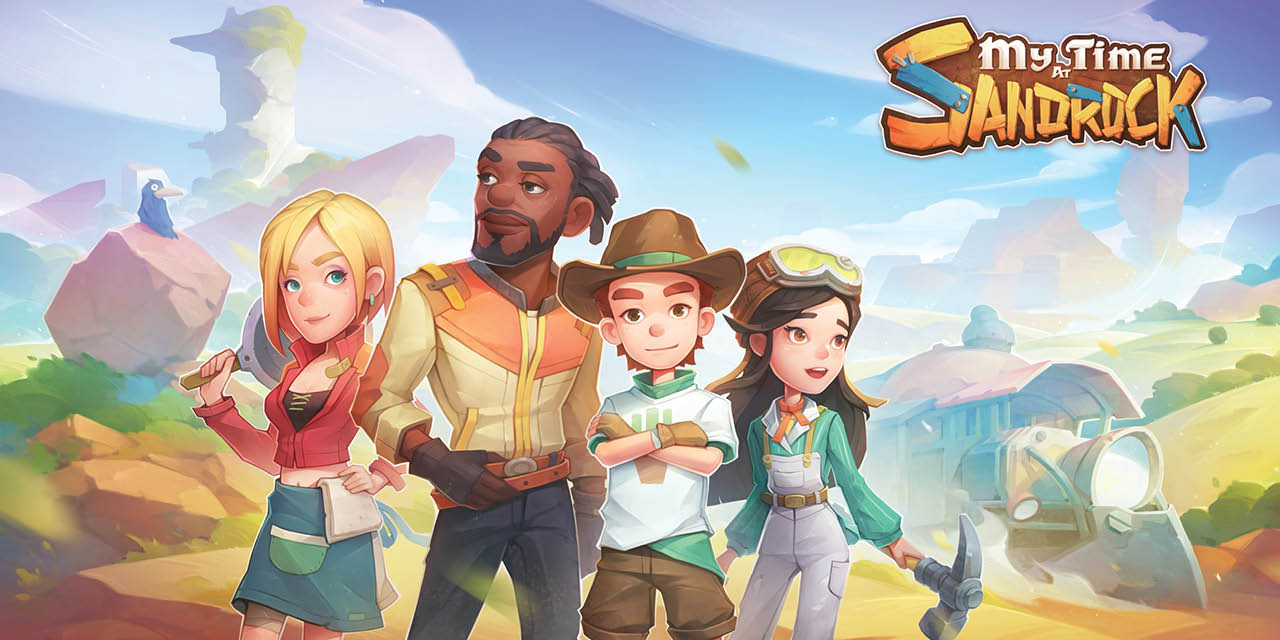To say I am a Final Fantasy fan would be an understatement. I used to play the originals on Nintendo growing up, right up to and past the launch of Final Fantasy VII on the original Playstation. Even back then, I thought the story was fantastic and ahead of its time. Fast forward to 2020 where Final Fantasy VII Remake was released and I was reliving my childhood memories all over again, this time with updated graphics, sounds and experiences. Now 4 years later, we get part 2 of the remaster in Final Fantasy VII Rebirth and I will attempt to give you a decent review without spoiling the story.
Leaving the dreary streets of Midgar in the rearview, Final Fantasy VII Rebirth catapults you into a vast and vibrant world, bursting at the seams with diverse landscapes and interconnected regions. It’s not just a world; it’s a tapestry of sprawling sandboxes, each one teeming with secrets to uncover and adventures to embark upon. Square Enix has really gone above and beyond, meticulously refining every facet of the original game, both in the heat of battle and during quieter moments of exploration.
But what really sets Final Fantasy VII Rebirth apart is its pacing. From the very first moments, we’re thrust into the heart of the action, with Cloud unravelling the threads of his complex past, weaving in the ominous presence of Sephiroth, and rekindling bonds with old comrades. It’s a whirlwind of excitement and nostalgia that grabbed hold of me far quicker than the Remake ever did. So, if you’re still on the fence, let’s delve deeper into what makes Rebirth such an irresistible force in the realm of JRPGs.

Final Fantasy VII Rebirth doesn’t just throw you into the main storyline; it also encourages you to wander off the beaten path with a plethora of quirky sidequests. From diving into a fully-fledged card game complete with booster packs and global rankings to participating in a celebratory cruise event, there’s something for every adventurer. This delightful mix of wacky diversions and deep lore is a dream come true for die-hard Final Fantasy VII fans.
I was particularly enamoured with the expanded world-building in Final Fantasy VII Rebirth. Stepping outside the confines of Midgar, the world suddenly feels so much grander, with countless extra details waiting to be discovered. Lore enthusiasts are in for a treat with the wealth of additional information sprinkled throughout the game.
But it’s not just about the lore; Rebirth also introduces friendship bonds, a feature that adds depth to the relationships between party members. By engaging in conversations and choosing the right dialogue options, you can strengthen these bonds, which not only affect certain light storyline events but also enhance combat synergy. It’s a brilliant way of making the entire party feel dynamic and alive, and this shines through in every voiceover performance.
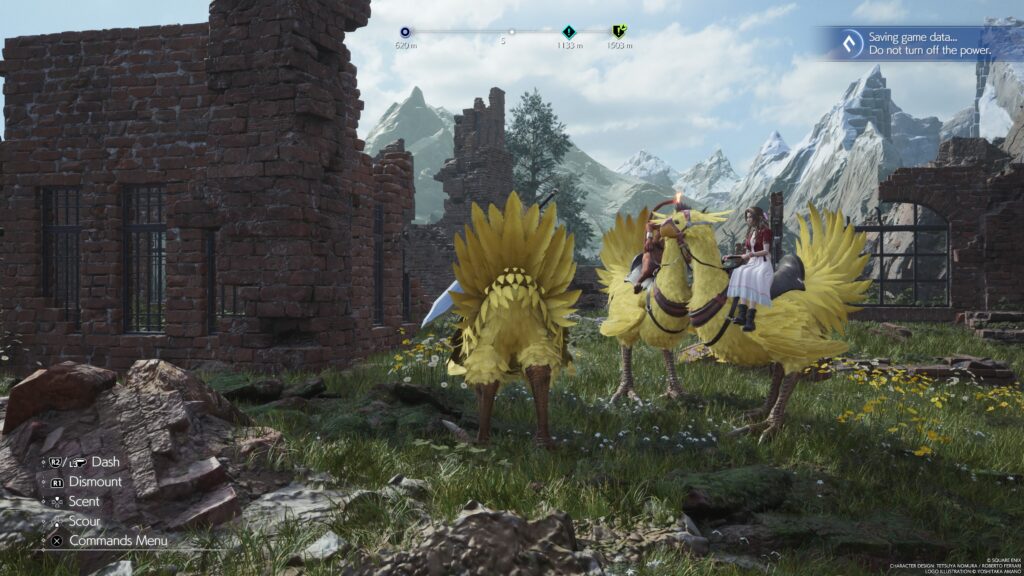
Final Fantasy VII Rebirth is brimming with standout moments that truly shine, like the unforgettable scenes of Barret and Red XIII navigating the Mithril Mines together, their banter stealing the spotlight as a fan favorite. Each chapter is peppered with interactions between characters who rarely shared the stage in the original PS1 version, and the early introduction of Yuffie seamlessly integrates into the narrative, feeling like it was always meant to be that way. While the remake remains faithful to many elements, it also introduces a healthy dose of original and altered ideas, keeping things fresh and exciting.
As for the game world, it’s important to note that Final Fantasy VII Rebirth isn’t a fully open-world experience, but I quickly embraced this aspect. As you progress through chapters, new regions unlock, totaling six expansive sandboxes to explore, alongside smaller zones brimming with secrets and sidequests. While it may not offer the freedom of soaring the skies in an airship, there’s still an abundance of content to delve into, easily surpassing the 100-hour mark, especially if you take the time to dive into the various minigames scattered throughout the world.
During my playthrough, I worried that they might have skimped on Gold Saucer, Final Fantasy VII’s renowned casino. But, to my delight, it’s not the case at all! In fact, it’s been expanded from its original version, evolving into a fully-fledged hub packed with numerous treasures to discover and earn over the long haul. I ended up losing track of time, spending countless hours exploring its depths aimlessly, and there’s still plenty left for me to uncover. Oh, and let’s not forget about Queen’s Blood – that minigame deserves a discussion of its own!
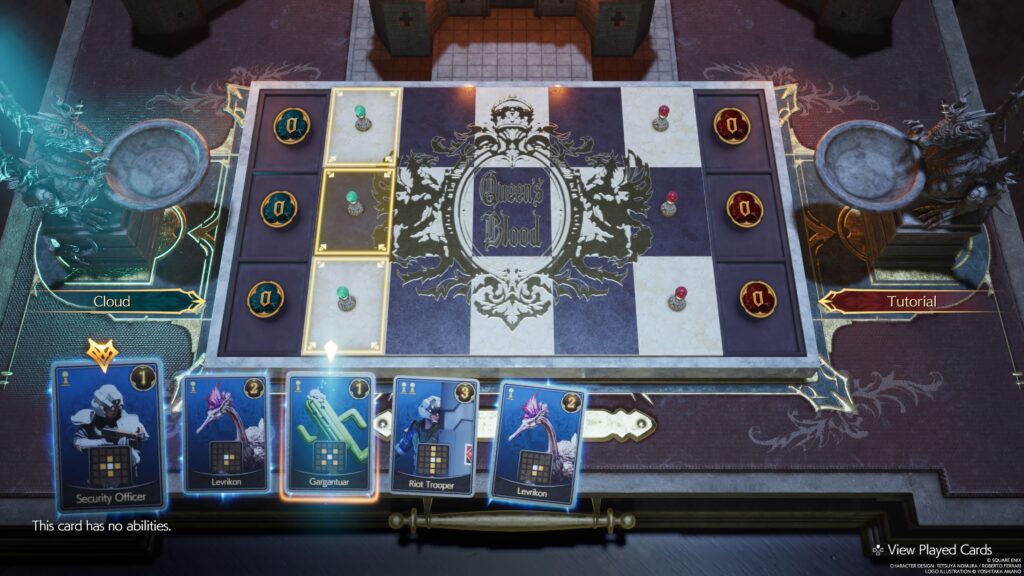
As a passionate tabletop enthusiast, I resisted the allure of the in-universe card game for several chapters before finally succumbing. Once I took the plunge, I was hooked. Queen’s Blood, with its simple yet strategic Othello-like placement rules, is remarkably easy to grasp, yet it offers a surprising depth of gameplay. As you advance, you’ll unlock more cards, each introducing new keywords akin to a future set release in Magic: The Gathering. What started as an afterthought quickly became a quest to seek out Queen’s Blood NPCs, steadily expanding my card collection along the way.
And let’s not forget about the soundtrack – a crucial aspect of any Final Fantasy experience. It may sound like hyperbole, but the score in FF7 Rebirth ranks among the best in the series. Despite the multitude of memorable soundtracks throughout the franchise’s history, the combination of new compositions and masterful reworks of classic tracks catapults this one near the top of my list.
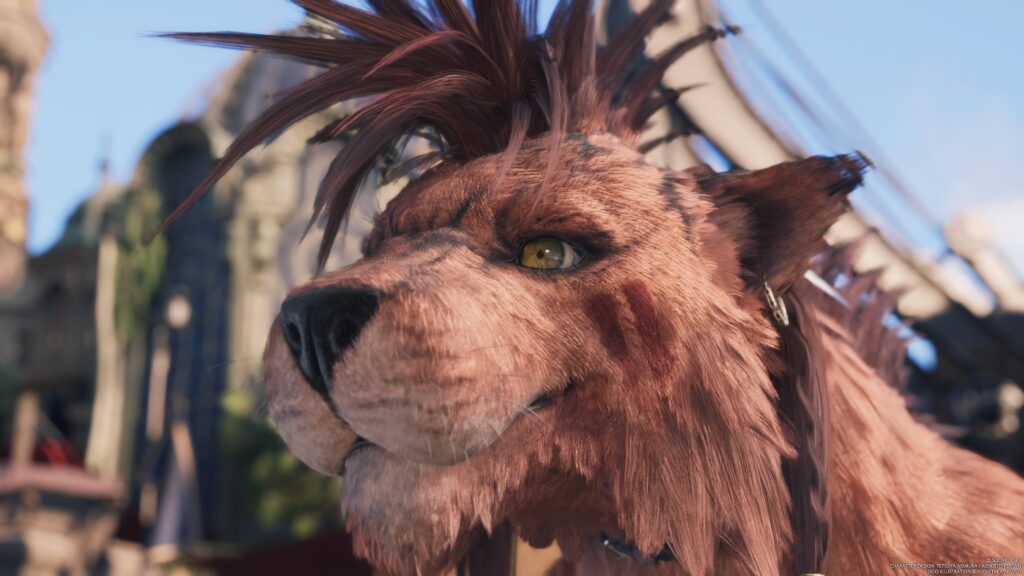
Combat, however, may not sway those who weren’t fans of the original system. It remains closely aligned with the core mechanics introduced in the Remake, a trend likely to continue throughout the trilogy. Dodging, blocking, and executing abilities and magic commands based on materia remain focal points, alongside building Active Time Battle (ATB) gauges to unleash attacks. While there’s a bit more flair now, with an emphasis on precise parrying and synergistic team maneuvers, the fundamentals remain consistent.
The enjoyment derived from combat heavily hinges on the complexity of encounters, which fluctuates throughout the game. Boss battles, in particular, demand varied tactics beyond exploiting weaknesses, requiring players to target vulnerable spots and react swiftly to devastating attacks. The return of the “stagger” system, where enemies become momentarily susceptible to heavy hits after depleting their stamina meter, adds both predictability and excitement to encounters.
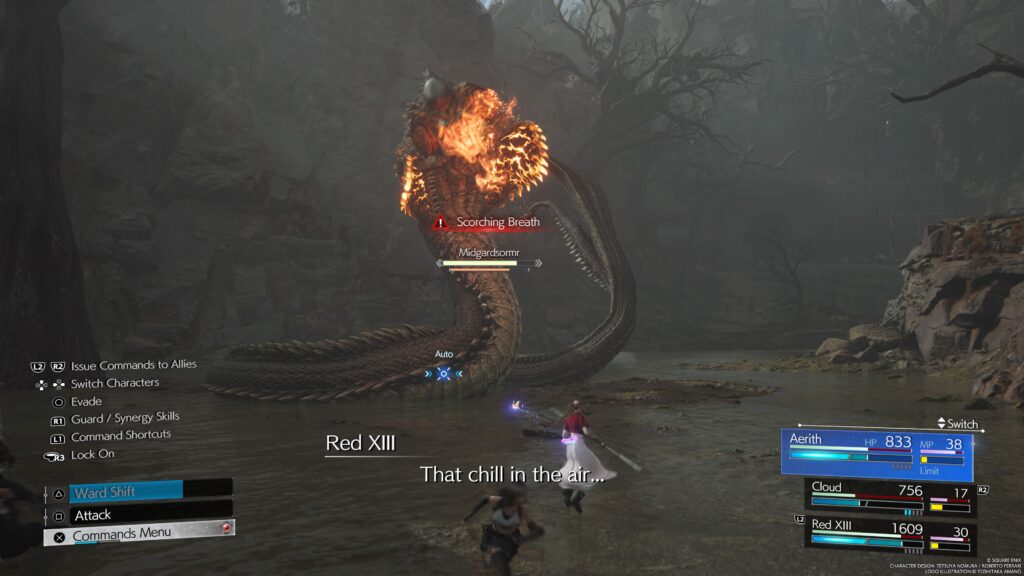
Similar to Final Fantasy XIV, the more visually captivating a fight is, the more engaging it tends to be. Many bosses feature multiple phases, accompanied by dramatic transition sequences, a stirring score, and continuous strategic adjustments. The inclusion of these encounters, both old and new, adds spice to the gameplay, breaking up the routine of lesser encounters.
Furthermore, there’s ample room for “customisation satisfaction.” With a straightforward skill tree system replacing Remake’s complex orb track, players can tailor their character’s abilities while mastering weapon skills and experimenting with materia combinations to their heart’s content.
However, certain underlying issues persist. Menu navigation, especially with larger party sizes, can be cumbersome, with sorting options often buried under layers of clicks. While not overly challenging, managing multiple party members, equipment, and materia slots can become cumbersome, particularly in the endgame. Additionally, the hard “chapter-based” structure, while effective for storytelling initially, can feel rigid during subsequent playthroughs and endgame cleanup.
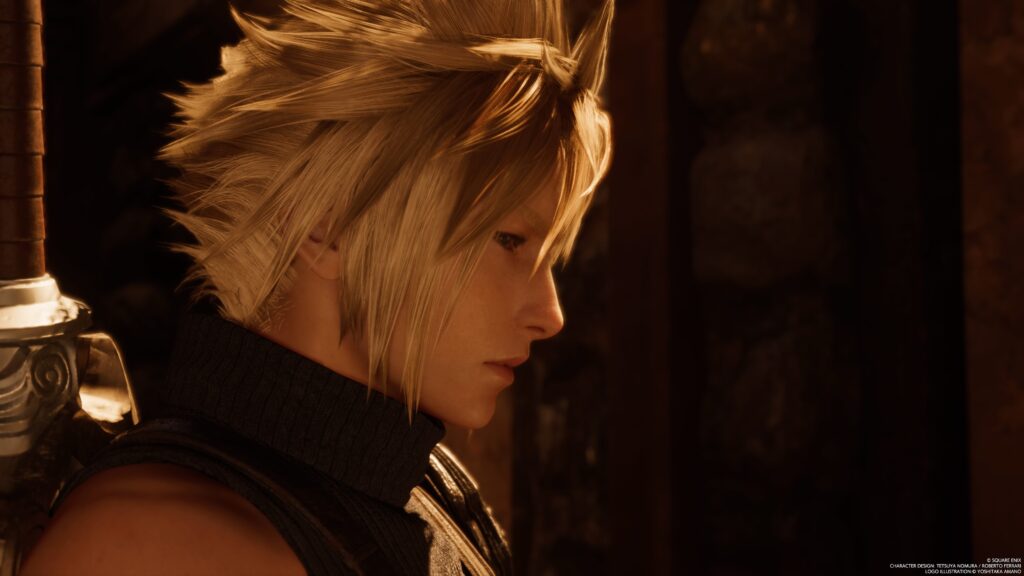
Despite these issues, technical problems are minimal, with only one significant crash encountered during a rather considerable playthrough. Final Fantasy VII Rebirth successfully juggles multiple elements, effortlessly balancing seriousness with absurdity, a hallmark of great Final Fantasy titles that has kept the franchise relevant for decades.
This review utilised a key provided by Bandai Namco and Final Fantasy VII Rebirth is out now exclusively on Playstation.
#roundtablecoop




